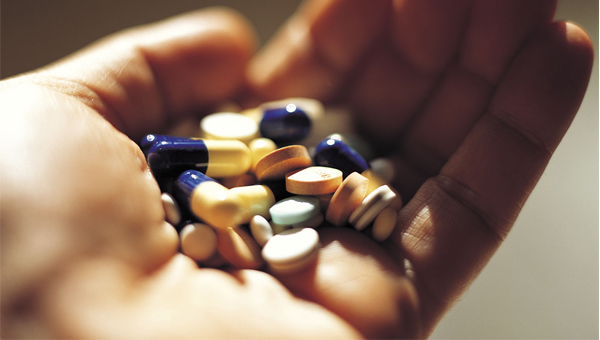Frequent urination at night is a common symptom of urinary tract diseases. Frequent urination at night is not an emergency problem but can seriously affect health and quality of life.
Causes of frequent urination at night
Normally, we can sleep for 6-8 hours at night without getting up to go to the bathroom. People with nocturia wake up more than once a night to urinate. This can cause disruption to a normal sleep cycle.
Symptoms of nocturia may include: Waking up more than once during the night to urinate. Urinating more often (if there is polyuria).... making us tired, sleepy - even after waking up.
There are many causes of frequent urination at night, it can be simply due to aging, postpartum, drinking a lot of fluids such as alcohol, beer, tea, coffee, pregnancy... in the evening before going to bed also causes frequent urination at night.
Additionally, other common causes may include:
- Polyuria: People with polyuria urinate many times in 24 hours. This is usually due to the kidneys filtering too much water. It can also happen if there is something in the urine that pulls the excess water out, such as sugar (glucose). People with polyuria have high fluid intake or untreated diabetes, diabetes insipidus, or gestational diabetes.

Some medications also cause frequent urination at night.
- Nocturnal polyuria: People with nocturnal polyuria only have high urine output at night. Their urine output during the day is normal or reduced. This is usually due to fluid retention during the day, which usually accumulates in the feet or legs. When you lie down to sleep, gravity no longer holds the fluid in your legs. It can re-enter your veins and be filtered by your kidneys to form urine.
Causes of nocturnal polyuria may include: congestive heart failure, swelling of the legs; sleep disorders, such as obstructive sleep apnea (breathing is interrupted or stopped repeatedly during sleep).
- Due to drugs: some drugs, including diuretics (water pills), cardiac glycosides, demeclocycline, lithium, methoxyflurane, phenytoin, propoxyphene and excessive vitamin D... also cause frequent urination at night.
- Other urinary diseases: prostate enlargement, bladder neck stenosis, causes of overactive bladder causing nocturia.
- Other diseases : heart failure, diuretic use, sleep apnea... lead to nocturia.
The secret to reducing nighttime urination
To overcome frequent urination at night, finding the exact cause is of primary importance. Patients can try to improve with the following non-drug measures:
- You should not drink a lot of water 2 hours before going to bed, especially you should not drink tea, carbonated drinks, alcohol, beer,...
- You should not eat a lot of spicy foods or sweets before going to bed because it will make you thirsty and have to urinate at night.
- Use low-salt foods: Reducing salt intake has been clinically proven to reduce cases of nocturia because eating salty foods makes you thirsty, leading to nocturia.
- Limit caffeinated drinks and alcohol: Caffeine increases bladder activity and can therefore cause nighttime urination, especially if consumed late in the day. Alcohol can act as a bladder irritant and should also be avoided.
- Postpartum women who experience frequent urination at night can do some Kegel exercises to improve pelvic floor muscles, helping to regain the feeling of urination.
- Get into the habit of urinating before bed, and elevate your legs when sleeping. Relax, keep your mind at ease, and avoid stress and excitement before bed. If someone in the family has nocturia, you should prepare a convenient path from the bedroom to the bathroom to avoid falls.
In addition, patients should increase exercise to control weight well, avoid being overweight or obese. If using blood pressure regulating drugs, patients should discuss with their doctor about the diuretic side effects of the drug. Diuretics will increase the number of times you urinate if taken in the evening.
If you have tried the non-drug measures mentioned above but your frequent urination at night does not improve, you should see a doctor soon. Depending on each specific case, doctors will give detailed instructions. Some cases may be prescribed medication, but there are also cases that require surgery.
Source: https://giadinh.suckhoedoisong.vn/lam-sao-de-bot-di-tieu-dem-nhieu-lan-172250121133636982.htm




![[Photo] Ho Chi Minh City is brilliant with flags and flowers on the eve of the 1st Party Congress, term 2025-2030](https://vphoto.vietnam.vn/thumb/1200x675/vietnam/resource/IMAGE/2025/10/10/1760102923219_ndo_br_thiet-ke-chua-co-ten-43-png.webp)
![[Photo] Unique Phu Gia horse hat weaving craft](https://vphoto.vietnam.vn/thumb/1200x675/vietnam/resource/IMAGE/2025/10/10/1760084018320_ndo_br_01-jpg.webp)
![[Photo] Opening of the World Cultural Festival in Hanoi](https://vphoto.vietnam.vn/thumb/1200x675/vietnam/resource/IMAGE/2025/10/10/1760113426728_ndo_br_lehoi-khaimac-jpg.webp)























































































Comment (0)